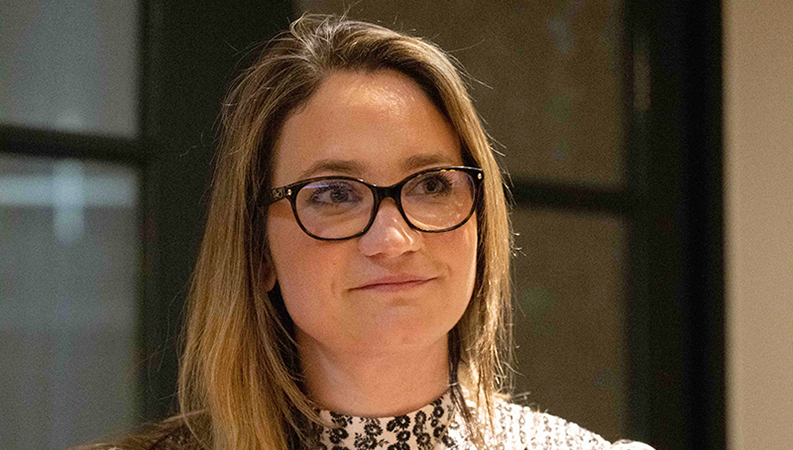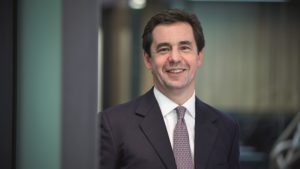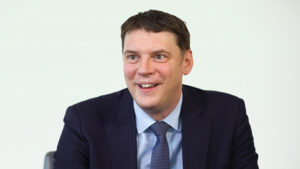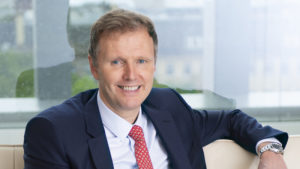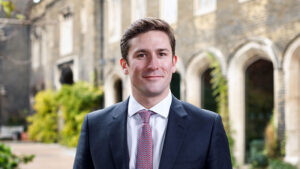“Asset managers play such an important role for businesses like us,” says Sophie Kennedy, joint CEO and head of investment at wealth manager EQ Investors. “We see them as the guardians of our clients’ savings and investments – so it is not about achieving the lowest price to the exclusion of everything else. We are happy to pay for asset managers that are going above and beyond their fiduciary duties and their objectives.”
We are discussing what constitutes value for money in the context of asset management and, asked to try and avoid a boring answer (only half-jokingly because it can come with the territory with that question), Kennedy rises to the challenge by referencing – not for the last time in our conversation – sustainability.
“One thing we are really focused on at the moment is strong stewardship,” she continues. “We see value in asset managers where they are focused on active engagement with the companies they are investing in – exercising their voice as long-term investors and, importantly, using their proxy voting. We see value in them harnessing the influence they have to encourage positive corporate change and positive industry developments that ultimately benefit our clients.
“From the point of view of a wealth manager looking at an asset manager, we want to see increased collaboration – by which I mean the responsible allocation, management and oversight of our clients’ capital to create long-term value – and we also want to see real evidence their engagements with underlying investments have intentionality to drive that positive change.
“These engagements could, for example, be ad hoc and come about as a result of controversy flags within their investment process or they could be company-material engagements, if the analysts identify an ESG weakness or a leadership opportunity. Additionally, we are looking for asset managers to have milestones in place to make sure they are actually doing what they are saying they will.
“And then we focus on strategic engagements – on the broader ESG considerations, of course, but also more specific aspects, such as achieving living-wage certification and science-based targets across all holdings. And that is where – with active funds but also in the passive space – asset managers can really offer more bang for their buck.”
Notable shifts
Kennedy joined EQ Investors in 2015 from Tilney Bestinvest – another business with wealth management sage John Spiers as part of its origin story – and rose from investment analyst to head of research, to head of investment before being appointed joint CEO in March 2021. During the past two years, then, has she observed any evolution in the triangular relationship between asset managers, intermediaries and end-investors?
“There have definitely been some notable shifts in that value chain over the last few years,” she replies.
“And, while of course I would say this as a wealth manager, I really believe intermediaries are integral to the relationship. That trend is definitely growing, with many end-investors now wanting to outsource any kind of investment decision they might have previously taken on the back of a do-it-yourself platform.
“Also, from an asset management perspective, there has been a big shift away from financial advisers choosing funds and building portfolios themselves – we are definitely seeing more outsourcing to DFMs and wealth managers. That is a big opportunity for us, but it does leave asset managers another step removed from end-investors, which means they have to work harder to ensure they remain relevant to that part of the market.”
Kennedy sees a number of reasons for these shifts, including costs, fees and, of course, regulation. “The likes of Consumer Duty and the Sustainable Disclosure Regulation (SDR) – and you could go as far back as Mifid II and even RDR – are big drivers for the financial industry and the way in which that triangular relationship you mention works.
“As for costs, maintaining a strong investment team – with all the research, subscriptions and other support they need to do their job properly – is expensive and many advisers have concluded they would rather spend their money elsewhere. Fees is another angle, as larger wealth managers can negotiate better deals than smaller advisers, meaning they can build and offer portfolios more cheaply.
“The ongoing consolidation in wealth management also has big repercussions as fewer decisionmakers means asset managers are having to work far harder for deals that, when they do come in, can be much larger in size. It is a similar trend for us as the adviser market consolidates and our client base and opportunity set condenses. We need to work with strategic partners and consolidators to really make sure we succeed as a DFM.”
Sustainable momentum
As the head of a business that sets great store by its sustainability credentials, does Kennedy worry that ESG investing has lost some of the momentum it built up through the pandemic years?
“As you suggest, we saw a huge wave of interest up to the end of 2021 and ESG effectively moved into the mainstream,” she begins. “In contrast, 2022 was a really tough year for the space, a lot of which was driven by market dynamics.
“The sectors that did best – most obviously oil and gas, as a consequence of the Ukraine war – were ones where a sustainable approach is problematic. That said, from a financial perspective, no asset manager should be offering funds that do not integrate ESG considerations – which really just means they are making sure they are taking account of all non-financial risks and opportunities.
“Furthermore, even though flows may have reduced across the sustainable space, there are too many tailwinds for it not to continue to push forward. Just to go back to the influence of regulation, for example, the rules and the taxonomies that govern ESG investing globally are ensuring company disclosures are ever-increasing, while another huge driver is investor demand.
“Climate change, biodiversity, healthcare and so on remain huge concerns and investor preferences are changing as people wake up to the fact they can align their pensions and savings with their values.
“Maximising your financial returns and your sustainability credentials are not mutually exclusive aims. I am biased – of course I am, we are a sustainable wealth management house – but I think the future is bright.”
Kennedy also points to passive inflows as a further support – going on to refute the suggestion that ‘passive ESG’ is an oxymoron.
“ShareAction does a great report that showcases how both active and passive managers are using their stewardship and proxy-voting powers and we are also seeing more and more innovation from index providers in the methodologies they use to ensure ESG investors can gain appropriate exposure.
“That results in a kind of active stock selection within a passive product and, with fee pressures ever-present, that trend will continue. We run a whole passive sustainable range ourselves and while we do not believe you can do impact investing in a passive way – as that is really about backing businesses that drive positive solutions – you can separate out companies that, from an operational ESG perspective, are not where they ought to be.”
Alternative angle
In the wake of last autumn’s mini-Budget fiasco, reports of the demise of the 60/40 portfolio seem to have been exaggerated but should end-investors be thinking beyond the more traditional asset classes, nonetheless? “I think you have to,” Kennedy agrees. “Last year, the correlation between equities and bonds pretty much blindsided everyone, following all the drama of the mini-Budget and the change in central bank positioning.
“Fixed income is now in a very different place to where it was last year, however, so there is again greater scope for diversification. Still, we have always had an alternatives bucket at EQ – though, in sustainable investing, it is more difficult to find diversifying alternatives as, compared with equities and fixed income, the due diligence is more complicated. The frameworks and regulations are not there – at least, not yet.
“Is shorting a company ethical? If you short a company that is making a positive change, does that go against your objectives to do good as a sustainable wealth manager? What do you do with options and futures? These are all questions we have to ask ourselves. On the other hand, infrastructure is a great diversifying asset for us as it fits so well with the UN’s Sustainable Development Goal of infrastructure, industrialisation and innovation.”
One consideration is that so much model portfolio business is held on-platform. “Daily-dealing and open-ended funds are requirements, which makes it much more difficult to home alternative assets, such as infrastructure,” says Kennedy. “Interestingly, from a sustainable perspective, however, there are now funds that hold investment trusts offering exposure to the likes of renewable energy, grid lines and healthcare and education properties.
“Wealth managers face similar hurdles with private markets while a further concern for us is that the SDR consultation paper really pushed the idea that impact is only possible in private markets. That is something we don’t agree with as it would curb retail investment. We do invest in private markets in our portfolios for higher net-worth individuals, but we don’t see how you can hold illiquid assets for Mr and Mrs Miggins on the street.”
Innovate and adapt
Finally, what qualities would Kennedy identify as helping to drive a successful asset management business? “Asset managers need to be able to differentiate themselves these days, whether that is through the way they do business or who they are as a business – through their purpose and culture or through having expertise in certain investment areas,” she begins.
“Returning to stewardship, then, an asset manager with the right intentionality and purpose to create change is the kind of business I think will succeed in the years to come – and being able to innovate and adapt is going to be important here. Certainly, a good culture can help create a business that can adapt and there are many asset managers out there who are doing a good job of that.
“Asset managers will also have to be able to price themselves well. Cost is so important these days and the smaller asset managers, who are facing increasing cost pressures – both from their wealth manager clients and from regulation requiring them to do more and more – are seeing their margins eroded. They could really struggle, which is a shame because some are those more boutique-y businesses are trying to do things differently.
“Two other thoughts: one is that the ‘star’ fund managers who were in the ascendancy when I first joined the industry have had their day and you really need a team approach to investing these days; and the other is that SDR is going to find out quite a few of the greenwashers. This could be the year when you see the spotlight shone on that part of the sustainability space – at least, that is my hope.”
Balancing purpose and profit
The harder a business talks the sustainable talk, the more it ought to walk the sustainable walk – and, for EQ Investors, that begins with its corporate structure. The business is 80% owned by staff and 20% by the EQ Foundation, a registered charitable institution that, over the past eight years, has donated more than £2m to good causes, with a focus on social mobility and environmental charities.
“That link means a proportion of the business’ profits will always go towards supporting good causes,” says Sophie Kennedy. “EQ has also been a ‘B Corporation’ – part of a community of purpose-driven businesses – since the idea was introduced in the UK in 2015. We wanted to effect positive changes as a business but, being small, we recognised the greatest chance we had of achieving that was to collaborate with others.
“That is exactly what B Corp offers. It acknowledges we have a corporate responsibility that spans beyond our shareholders – that we are also accountable to the employees who drive us forward, the communities we operate in and the environment we depend on. It involves a legally binding commitment, including a change in our articles of association so that we focus on what they call the ‘triple bottom line’ of profit, people and planet.”
What sort of benefits does that bring? “A multitude,” Kennedy believes. “Of course, we target long-term financial performance but, with much less of a focus on quarterly results, we can invest longer term in the business – and we have really done that with our innovation. Sustainable investing is a specialism – we all know that – and we have invested heavily in our investment and research capabilities since the company was formed.
“A key element in sustainable investing, for example, is reporting – really being able to connect clients to the capital we have invested for them – so we have built up our expertise there. We have also been able to attract talent we would probably not have done otherwise – and, more importantly still, we have been able to retain that talent.”
This includes a strong relationship with social mobility charity, the Resurgo Trust, with EQ hiring graduates from its Spear employment support programme for 16 to 24-year-olds. “Over 10% of our workforce is now recruited through that charity,” says Kennedy. “It helps us create a diverse culture and, importantly, to follow through on some of the commitments we make as a business.
“In fact, our whole business structure builds longevity into how our strategy and our commitments are upheld. When we went to COP26 in 2021, that was one of our biggest messages: as a CEO you can promise the world but if you are not going to be at the business in five years, who will uphold the commitments you make now? Our structure allows us to follow up on what we say we will do.”
Build from within
Among Sophie Kennedy’s management responsibilities at EQ is the creation of a diverse and inclusive culture internally while, externally, she is co-head of Women in Banking & Finance’s Next Generation Stewardship Hub. How does she believe the financial services sector can introduce meaningful change in this regard – not just attracting a broad spread of people into the industry but ensuring they want to remain in it?
“There is no quick fix – that is the simplest answer,” she replies. “In purely mathematical terms, if you have a pool of mostly white males to choose from, the majority of your staff will be white males. You cannot change things overnight because you have to hire on a ‘best candidate’ basis – although, when we recruit for any role, we use ‘blind CVs’, with a candidate’s personal details removed, to try and address any unconscious bias.
“I have mentioned Resurgo’s Spear programme and, wherever we can commit to hiring those roles, we will. EQ has also signed up to the Women in Finance charter, which brings a collaborative mindset – albeit it is a quota and I am not sure how far you really get with quotas, especially at a business where there are 70 people. If one senior lady leaves, that massively skews your percentages quite quickly.
“Then there are other industry initiatives, such as 10,000 Black Interns, which is fantastic. We have participated in it since it launched and we will be doing so again this year. Ultimately, I want us, as a business, to benefit from the positive impact of having a diverse and inclusive culture because I believe it brings huge benefits.
“There is now plenty of research to show diversity of thought breeds a strong culture and, in turn, a strong financial business. As a senior woman in the industry, I have the opportunity to drive change and I will continue to do so.
“‘Imposter syndrome’ is real. I wake up with it every day – even though I am in a very privileged senior position. Coaching programmes do now exist to help people with self-belief so companies investing heavily in this sort of support for women and other minority groups is well worth it.
“And then it is so important to hire from within, wherever you can. I read a really interesting piece around quotas from a race perspective, which found companies were hiring senior minority candidates from outside the business rather than working to build and promote from within. I don’t think there is anyone in this industry who does not want to drive it forward. But it will take time…”
Kennedy goes on to acknowledges a generation of women who made her own path smoother than it might have been. “I hosted a panel with Ann Cairns, who was super-senior at HSBC and has just stepped back as chair of The 30% Club, and Anne Boden, who is the CEO and founder of Starling Bank,” she says.
“They talked about the oppression they experienced in their journey – they were really the ones who stuck their necks out.
“I could not honestly turn around to the more junior women in this industry and say, I have suffered for you to be here – I just haven’t. I have been very privileged in the way I have had commitment and support from the businesses I have worked at and that has been great.
“I used to play football – and I am an avid Arsenal fan, for my sins – and there is a lot going on at the moment with women managers and coaches. When we see a woman in the dugout for a Premiership match, that will be a massive step forward for women across the world. At least there is no equivalent of a woman never holding a senior role like that in our industry, so we are doing something right.”
Quickfire Q&A
Q: What is the best piece of advice you have ever been given?
Live your life for you – not to please expectations.
Q: What would be your ‘top tip’ to PA readers to help them run a better business?
Think about who you are managing the business for – and then rethink it. Focus beyond clients and management to bring your employees, your suppliers, the local community and the environment into your decisions.
Q: What single issue should most concern professional investors at present?
I will say climate, biodiversity and human rights should be top of everyone’s agenda, including the regulators’. Not integrating ESG into the way you think about investing is the biggest risk.
Q: What most excites you about your job?
I am hugely passionate about diversity and inclusion. I am lucky enough to be in a position to influence the company’s ethos and values and the industry more widely, but we should all really strive to build and be more inclusive, innovative and ambitious here.
Q: Does anything about your job keep you awake at night?
Other than my children, the implications of the Sustainable Disclosure Requirements – especially around impact investing and precluding retail investors from accessing it – is what wakes me up at 3am.
Q: If you were head of the FCA, what would be your priority?
The FCA’s own current focus on Consumer Duty and the SDR consultation – sorting the wheat from the chaff in sustainability – would be my top of my agenda, too.
Q: What advice would you give to someone starting out in investment today?
Think about real world change. As an industry, we have a massive opportunity to drive systemic change and investors should be tasking asset managers to work with their underlying companies to live up to that.
This article first appeared in the March edition of Portfolio Adviser Magazine
